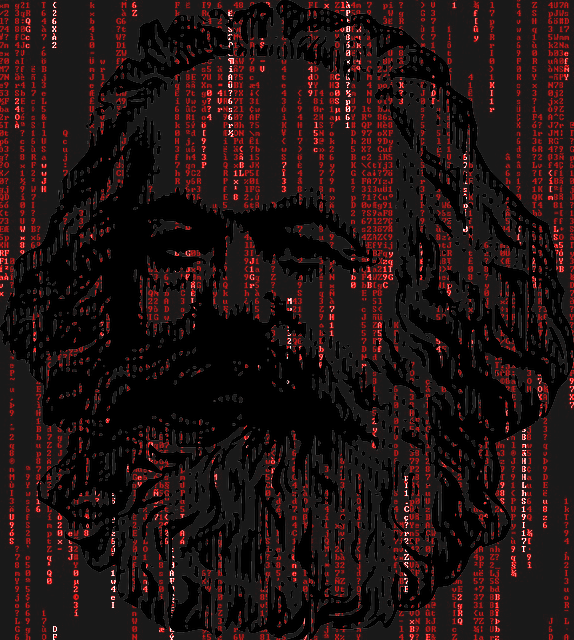Big Data and Central Planning
May 5, 2018, marked the 200th anniversary of Karl Marx’s birth. To mark the occasion, a handful of writers argued that despite the bad press Marxism has received over the past century, many if not most of Marx’s core critiques of capitalism were “essentially right.”
One of the most widely circulated of these pieces made the increasingly popular argument that while Marxist regimes have been an unmitigated failure over the past century, his theoretical arguments for the efficacy of central planning and predictions about the inevitable demise of capitalism were in effect spot on. The reason Marx-influenced regimes failed historically, according to this line of thinking, is not because of any inherent problems with central planning. Instead, it is because planners lacked the data necessary to effectively implement the sort of command-and-control economy Marx envisioned.
In other words, Marxism didn’t fail because it was wrong. It failed, as one prominent leftist economist argued in summarizing Thomas Piketty’s best-selling Capital in the 21st Century, because it was “just early.” By this logic, defenders of Marxism argue, the invention of the computer and rise of “big data” should inject new life to socialist ideas that were once considered dead.
Does the rise of big data portend the sunset of capitalism and the dawn of a now viable socialist alternative? Will the future look like an egalitarian blend of HBO’s Westworld and Peter Joseph’s Zeitgeist Movement? I recently had this discussion with a student of mine who grew up in Silicon Valley. Although he is by no means a Marxist, he played the Devil’s advocate by pointing out, as many modern Marxists do, that
today, we have public access to more knowledge than previously imaginable.… Not one person who lived during the Communist revolution could have imagined the scope and magnitude of the available data and information that companies like Facebook, Google, and Equinix gather in an hour. With this in mind, do you think it could be possible to access the knowledge required to efficiently allocate resources?… With all of the data that Amazon collects, do you think a centralized government could more effectively allocate resources than a free market under some circumstances?
This logic is tempting. However, its appeal is based on a superficial understanding of the key insights from arguably the most important economic debate of the 20th century, the socialist-calculation debate.
Contrary to popular belief, Ludwig von Mises and F.A. Hayek’s argument against their socialist opponents in the 1920s and 1930s wasn’t simply that socialist planners suffer from a lack of information. Their argument was that planners lack access to the specific type of knowledge that makes it possible to efficiently allocate an economy’s means of production among an endless array of possible uses. This concerns the central question of economics, what economists call the economic problem: what is the best (i.e., most efficient) way to allocate an economy’s scarce resources to produce the final output consumers ultimately desire? In other words, what should we produce, and how should we produce it?
The key ingredient for rational economic calculation, according to Mises and Hayek, is market-determined prices. Market prices allow producers to calculate the opportunity cost of various methods of production. Producers can then use the market prices to determine the least costly means of producing whatever final goods consumers ultimately desire. (In making their case, Mises and Hayek granted socialists the rather generous assumption that planners somehow had access to the knowledge about ultimate consumer preferences.)
An example helps illustrate this point. Suppose you are a central planner tasked with building a railroad. Even if we assume you’ve been given the most efficient route and ample resources to complete the project, how would you decide what inputs you should use to build the railroad in the most cost-effective manner? Without money price signals, you’ll be unable to determine whether it’s less costly to construct a railroad out of gold or steel. Gold is, after all, a higher-quality metal than steel, making it more technologically efficient. Absent money prices, it might seem obvious to an engineer that they should build the railroad out of gold. But for a variety of reasons, many of which might be completely unknown and unknowable for planners, gold is likely to be a significantly costlier input than steel. Absent money prices and the ability to engage in profit-and-loss accounting, the most technologically efficient production method would always win out over the most economically efficient (i.e., lowest opportunity cost), at a high cost to society.
As Hayek emphasized throughout his writings on this topic, the knowledge required to engage in rational economic calculation cannot be assumed to be given outside of the context in which it is created. That is, economic knowledge can only be generated in an institutional context that protects private property, particularly for the economy’s capital goods. In other words, it can only be created in a market economy. Absent private property in the means of production, there can be no market for them, and hence no money prices to inform entrepreneurs — Mises’s “driving force” of the market economy — what the least costly method is for producing any given good or service.
Add to that the fact that big data from the past can’t be used to predict future consumer preferences or spark the sort of “creative destruction” that economists like Joseph Schumpeter placed at the forefront of reasons why the capitalist system was so dynamic, and you’ve got the recipe for understanding why countless examples from recent history show how capitalist systems thrived while socialist systems failed. One need only look at the natural experiments that played out in East and West Germany, or a snapshot of the Korean peninsula at night, to grasp the gist of this.
Peter Boettke summarizes Mises and Hayek’s core arguments in three related steps. Each point is so critical that I make my students memorize them all in every one of my classes.
- Without private property in the means of production, there will be no market for the economy’s means of production.
- Without a market for the means of production, there will be no money prices for them.
- Without money prices reflecting the relative scarcity of capital goods, economic decision-makers will be unable to rationally calculate alternative uses of capital goods.
If the theory behind the socialist-calculation debate is too abstract for your intended audience, bear in mind that there’s an equally powerful empirical argument for why central planning doesn’t work even in the digital age. We have central planning today in nations like North Korea and Venezuela. Why doesn’t it work, given that they have access to supercomputers and big data? Again, to reiterate our main point, the answer lies in the fact that the fundamental problem with socialism isn’t informational, it’s institutional.
The theoretical case against central planning is valid in the face of the big-data revolution. Big data may help give firms and governments the sort of information they need to make better decisions. But it poses no threat to capitalism. And it certainly doesn’t provide a magic elixir to the theoretical and practical ills of socialism. The big-data revolution might be alive and well. But Marx’s ideas are still dead wrong.











